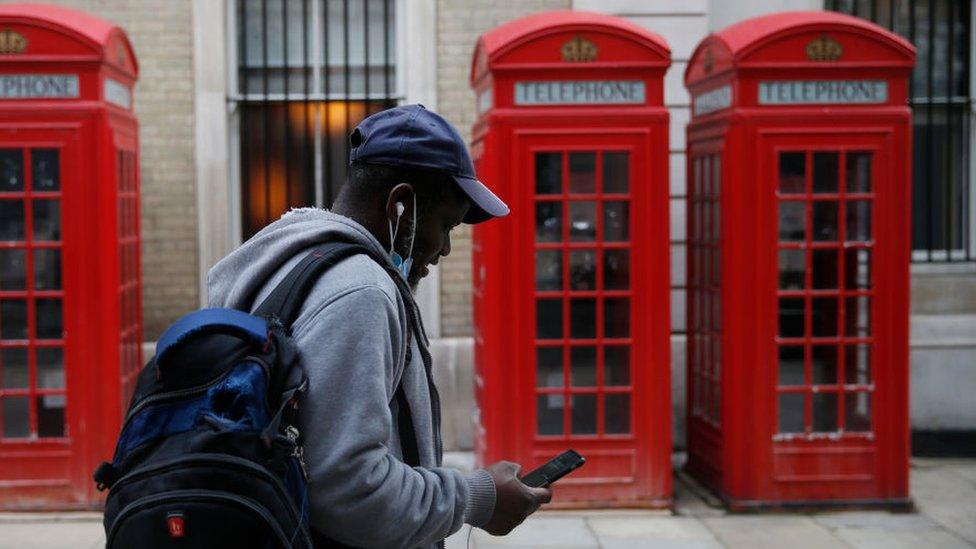Covid: UK daily cases pass 50,000 for first time since January
- Published
- comments
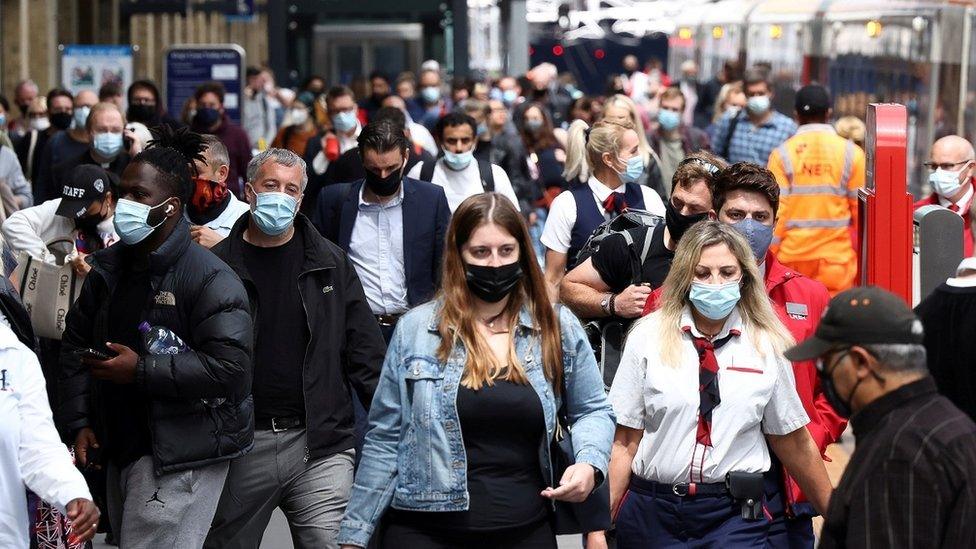
More than 50,000 daily coronavirus cases have been reported in the UK for the first time since mid-January.
There were 51,870 cases recorded - the highest figure since 15 January - and 49 deaths within 28 days of a positive test.
From Monday, lockdown rules will end in England - although some guidance will remain.
Earlier, England's chief medical officer warned hospital admissions could hit "scary numbers".
Prof Chris Whitty said the number of people in hospital with Covid was doubling roughly every three weeks.
The UK is "not out of the woods yet" and people should act with caution as restrictions are eased on Monday, he added.
The highest number of daily cases the UK has recorded so far is 68,053 on 8 January.
Health Secretary Sajid Javid previously warned case numbers could reach 50,000 a day by 19 July, and as high as 100,000 over the summer.
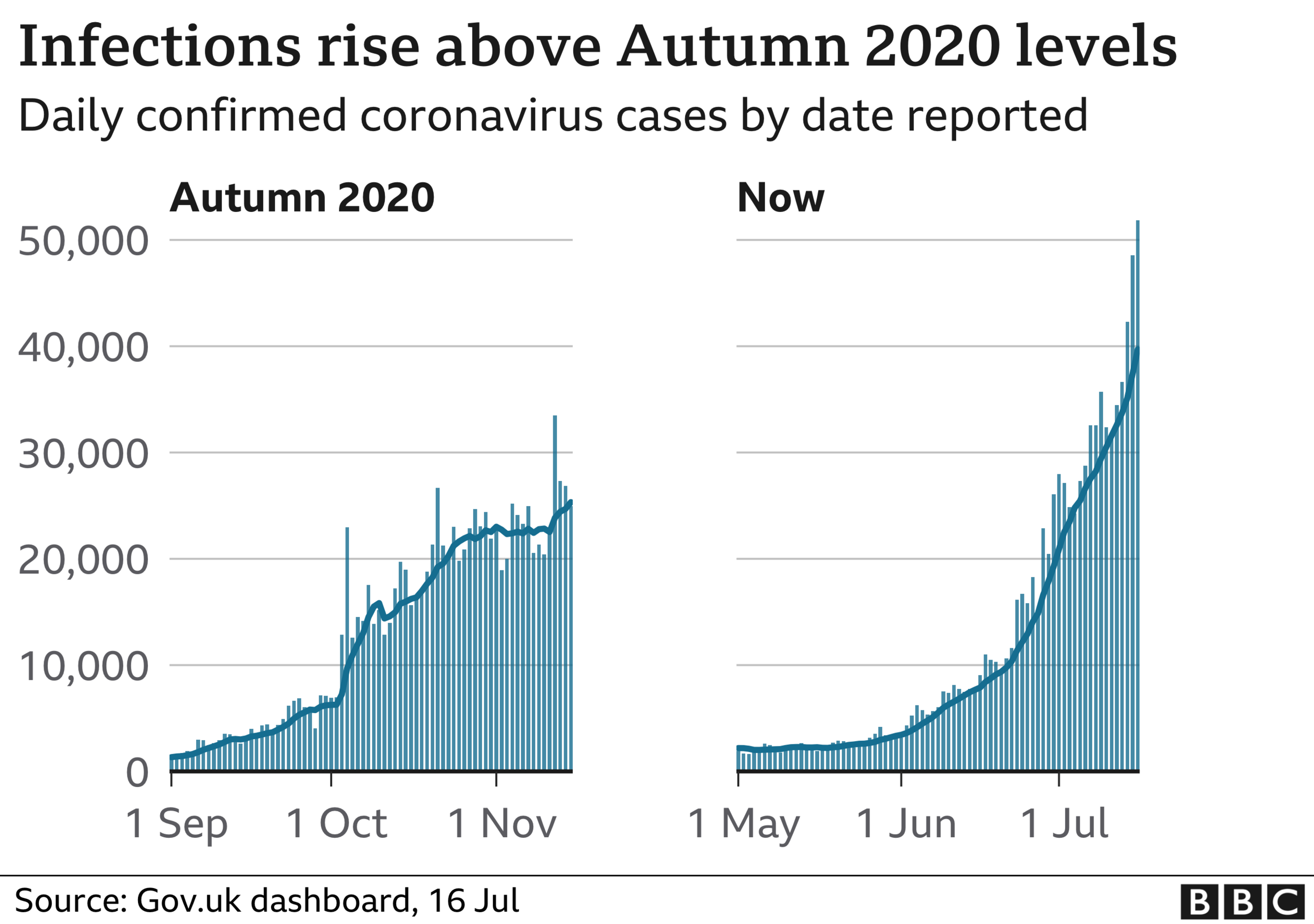

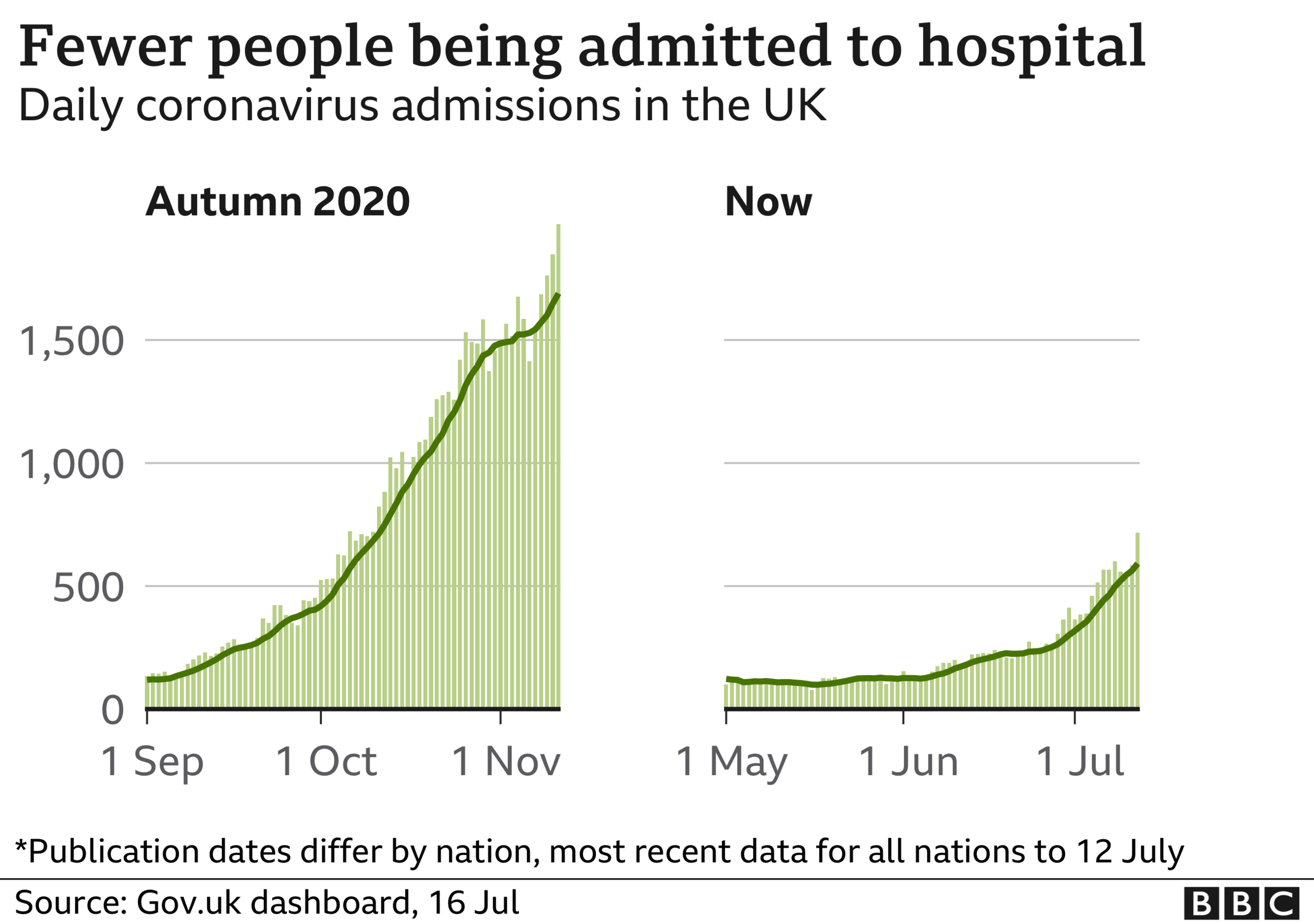

Meanwhile, separate Office for National Statistics data suggests Covid infections have risen again in much of the UK.
Latest figures from swab tests in the community suggest in England one in every 95 people has the virus - up from one in 160 in the previous week.
In Scotland, one in every 90 people is estimated to be infected, while in Northern Ireland it is one in 290 and in Wales one in 360.
The more infectious Delta variant accounts for almost every case.
It is estimated that just over 650,000 people, or 1% of the population in the UK, would have tested positive for coronavirus in the week to 10 July - up from 400,000 people the previous week.
The ONS says the percentage of people testing positive has "continued to increase" in England and Scotland, whereas the "trend is uncertain" in Wales and Northern Ireland.


Passing 50,000 cases a day feels like a worrying landmark, but is it?
We were last at those levels around the peak of the second wave in January, when it took a tough lockdown to prevent hospitals buckling.
But now more fuel is being thrown on the fire as restrictions ease in England and Scotland on Monday, and Wales on Saturday.
Cases will go even higher. How high? Nobody knows for sure.
Letting this happen is possible only because vaccines have transformed the danger posed by a summer wave. Without them, we'd be debating locking down.
Yet vaccines have not eliminated the Covid threat.
Letting the virus spread could still put pressure on hospitals, leave people with long Covid and be hugely disruptive as large numbers of people need to isolate.
Reaching 50,000 daily cases doesn't mean the same as it did six months ago, but doesn't mean it will be smooth sailing.

As cases rise, more people are being forced to isolate, with businesses warning of staffing shortages.
More than half a million self-isolation alerts were sent to people using the NHS Covid-19 app in England and Wales during the first week of July - a rise of 46% on the previous week.
Alerts are sent through the app to tell individuals they have been in close contact with a positive coronavirus case and should to isolate for 10 days.
The number of people being admitted to hospital with Covid is also rising - but at a much lower rate than during previous waves because of the impact of vaccinations.
More than 46.1 million people in the UK have had their first dose of a coronavirus vaccine - 87.6% of adults, while more than 35.5 million - 67.5% of adults - have had both doses, according to the latest figures., external
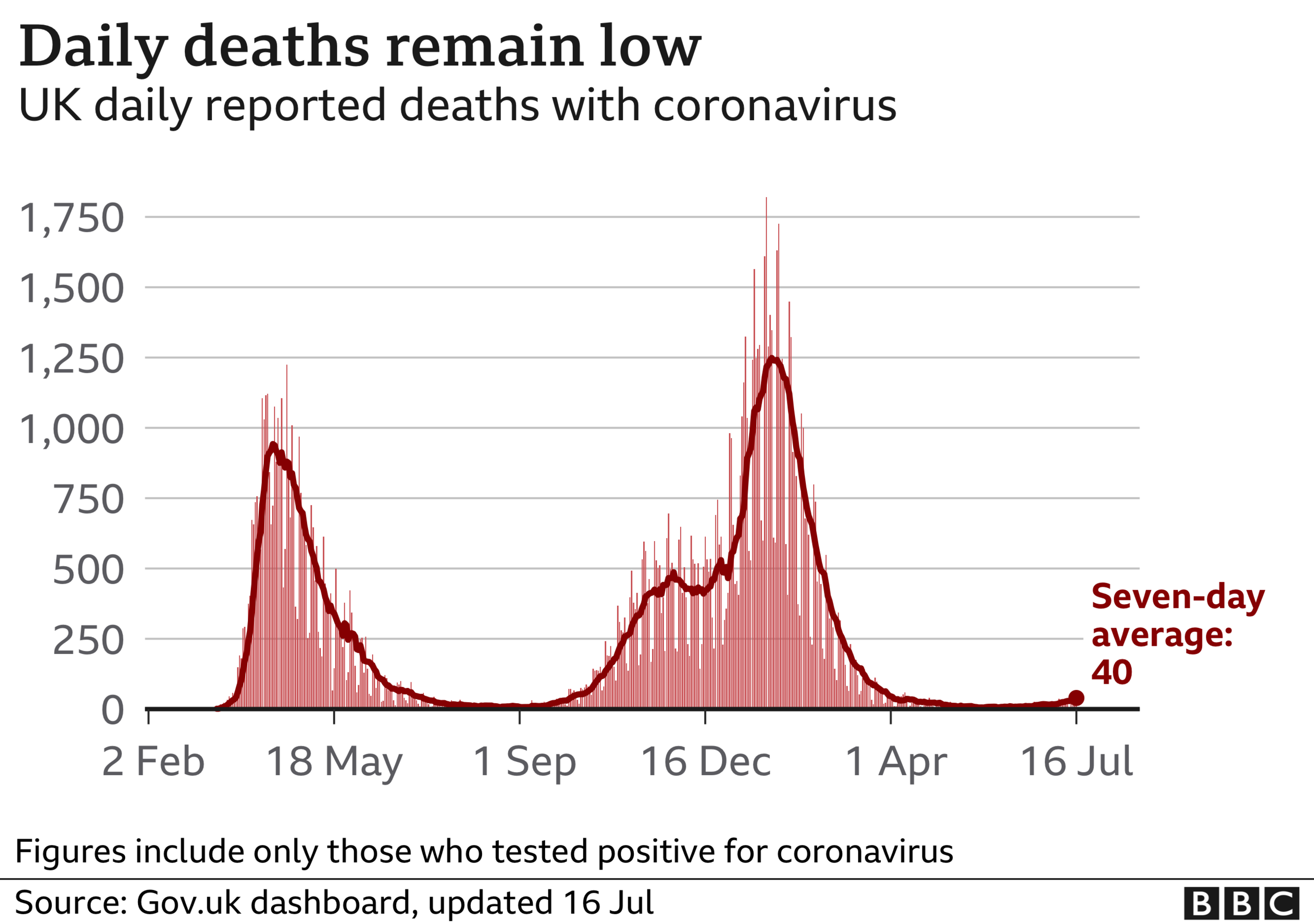

It comes ahead of almost all legal restrictions on social contact being lifted in England on Monday.
Lockdown rules are also being eased in Scotland on the same date, although there will still be some curbs, including on how many people can meet.
In Wales, restrictions are easing slightly on Saturday but most will remain in place until at least 7 August.
Northern Ireland is due to lift more restrictions on 26 July.
Earlier, Solicitor General Lucy Frazer said that while cases would rise in the coming days, there were "consequences for not opening up".
But she told Sky News the government could not rule out reintroducing restrictions in England if the virus situation became "unacceptable".
In other developments:
University Hospitals Birmingham NHS Trust - one of the largest hospital trusts in England - has cancelled planned operations for two days amid an increasing number of Covid patients
Most UK travellers will be banned from entering Bulgaria from Monday, after it added the UK to its high-risk red zone list
Taxi firm Uber has said its drivers and passengers will still need to wear face coverings in England from Monday, when legal restrictions are lifted
England is experiencing an unseasonable rise in the winter vomiting bug, norovirus, with public health experts warning further increases are possible as Covid restrictions are eased

THE BATTLE FOR THE SOUTH CHINA SEA: The Filipino fisherman caught in the middle of a political storm
LUTHER: This detective might be as dangerous as the criminals he catches

Related topics
- Published16 July 2021
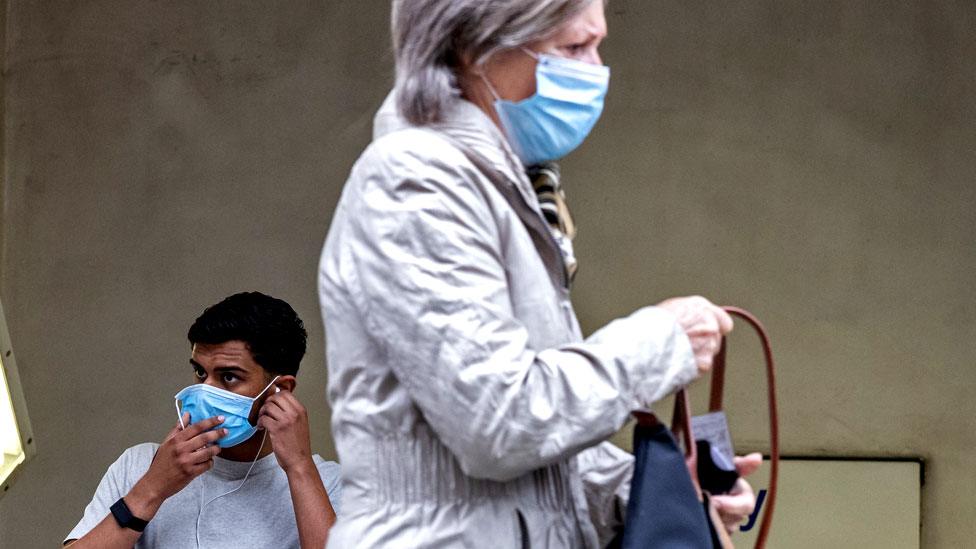
- Published16 July 2021
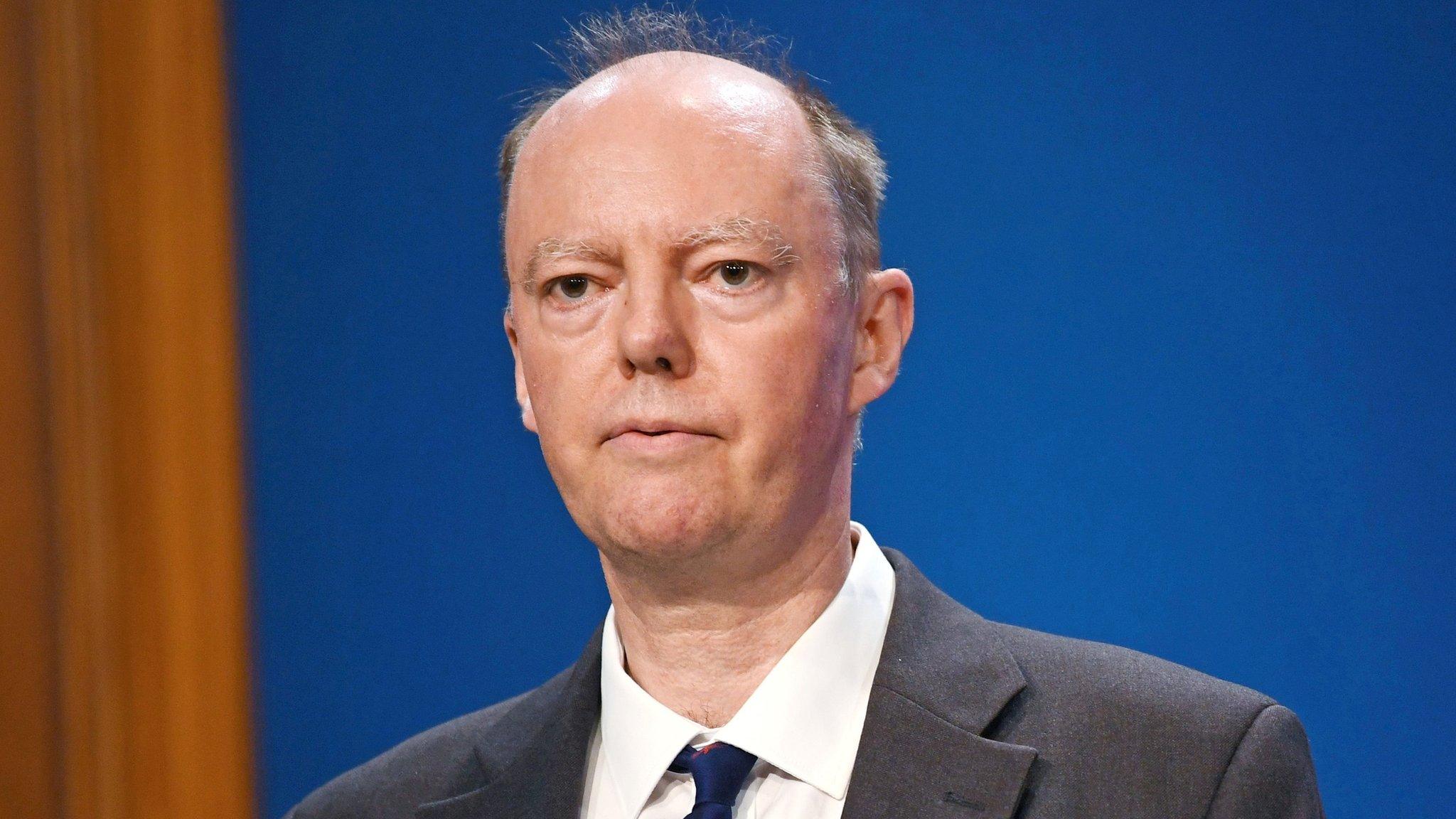
- Published15 July 2021
